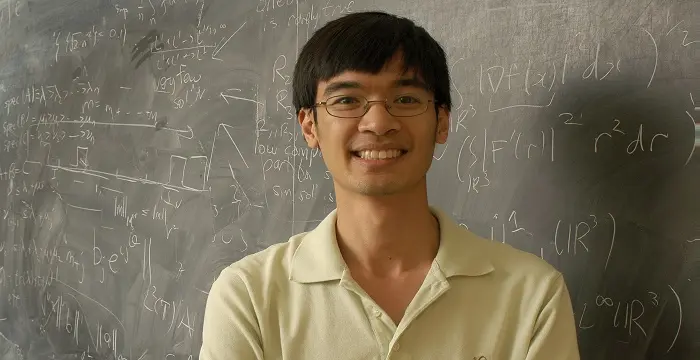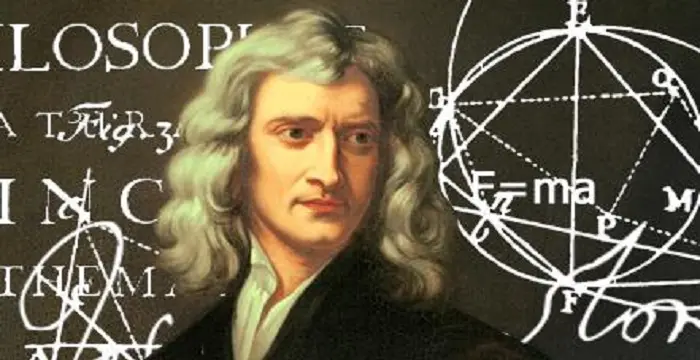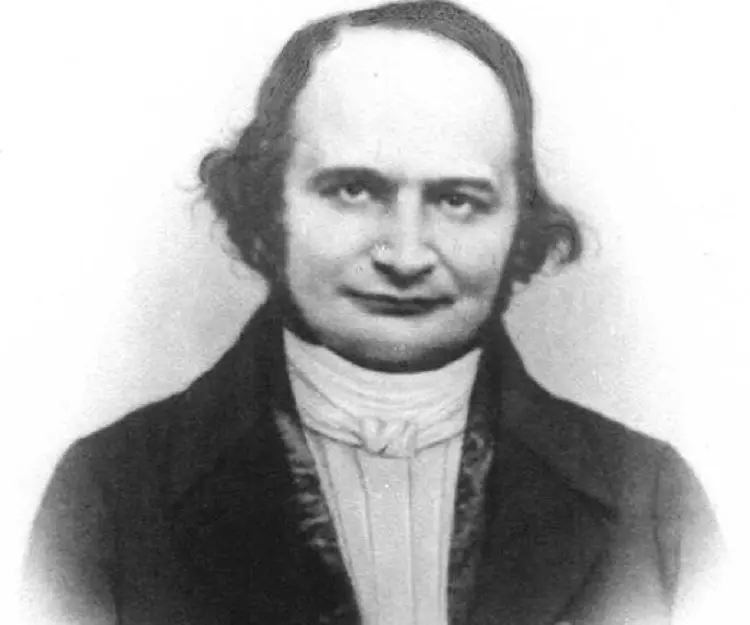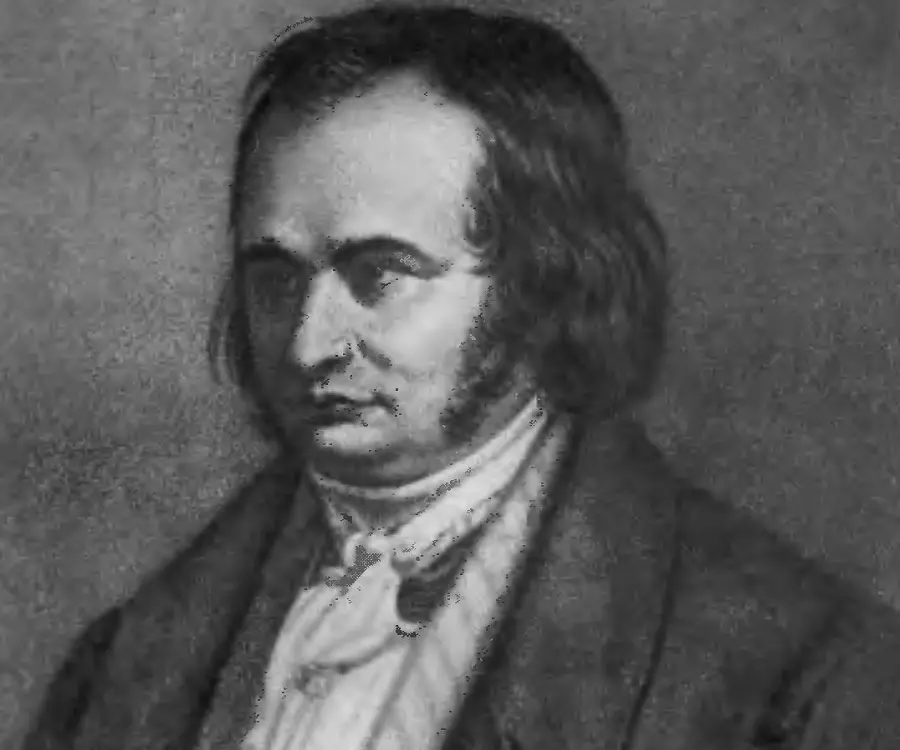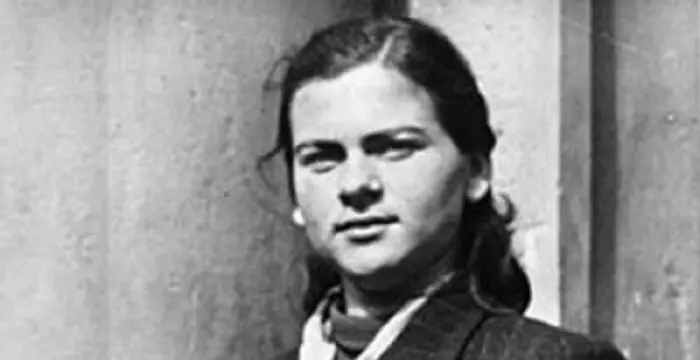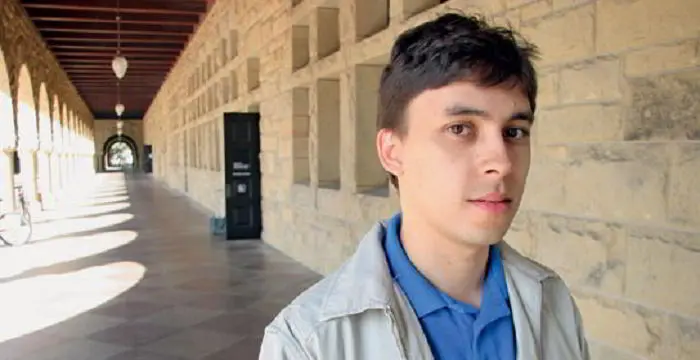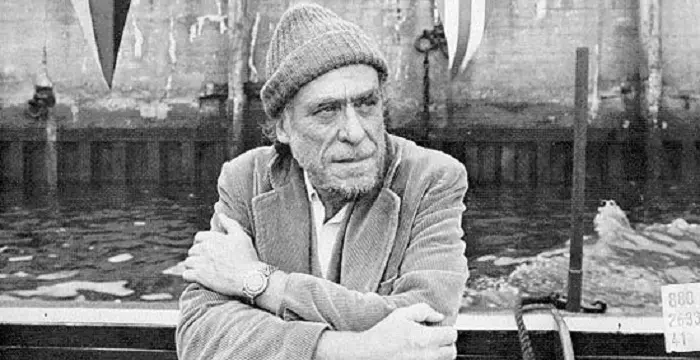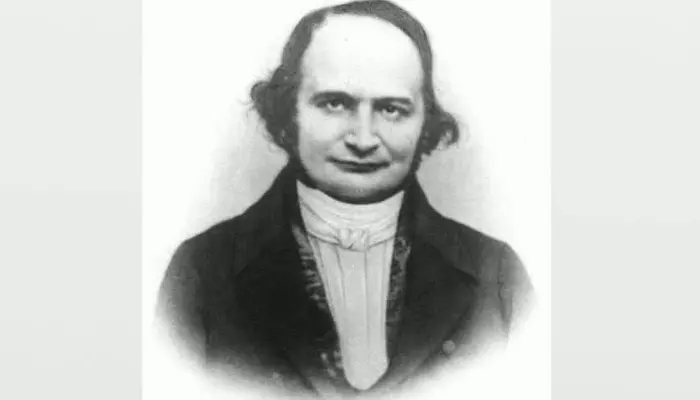
Carl Gustav Jacob Jacobi - Mathematicians, Birthday and Family
Carl Gustav Jacob Jacobi's Personal Details
Carl Gustav Jacob Jacobi was a German mathematician who co-founded the theory of elliptic functions
| Information | Detail |
|---|---|
| Birthday | December 10, 1804 |
| Died on | February 18, 1851 |
| Nationality | German |
| Famous | Scientists, Mathematicians |
| Siblings | Moritz von Jacobi |
| Known as | Καρλ Γκούσταβ Τζάκομπ Τζακόμπι, 卡爾·雅可比 |
| Universities |
|
| Birth Place | Potsdam, Germany |
| Religion | Judaism |
| Gender | Male |
| Sun Sign | Sagittarius |
| Born in | Potsdam, Germany |
| Famous as | Mathematician |
| Died at Age | 46 |
// Famous Mathematicians
Grigori Perelman
Grigori Perelman is a Russian mathematician who is best known for his contributions to Riemannian geometry and geometric topology. Check out this biography to know about his childhood, family life, achievements and fun facts about him.
Terence Tao
Terence Tao is an Australian- American mathematician who has contributed enormously to the field of mathematics. Check out this biography to know about his childhood, family life and achievements.
Isaac Newton
Isaac Newton was an English scientist and mathematician, who discovered gravitation and Newtonian Mechanics. Read this biography to find more on his life.
Carl Gustav Jacob Jacobi's photo
Who is Carl Gustav Jacob Jacobi?
Carl Gustav Jacob Jacobi was a German mathematician who co-founded the theory of elliptic functions. A child prodigy, Jacobi developed an affinity for mathematics from a young age. He received his early education in mathematics from his uncle Lehman who home schooled him. His remarkable abilities and excellence at the subject reflected at an early age—at twelve, he was ready for university level of studies. However, due to age restrictions, he entered Berlin University, at the age of 16, in 1821. Attaining his doctorate degree, Jacobi took up the profile of a university professor, a position which he served for the better part of his life. It was while serving as a mathematics professor that he made fundamental contributions to elliptic functions, dynamics, differential equations and number theory. He penned a vast amount of manuscripts, some of which were published in his lifetime and some posthumously. Interestingly, born with a Jewish parentage, Jacobi turned himself into a Christian to qualify for a university position
// Famous Scientists
Juliane Koepcke
Juliane Koepcke is a German-Peruvian biologist, who was the lone survivor among the 92 passengers and crew of the ill-fated LANSA Flight 508 that crashed in the Peruvian rainforest on 24 December 1971. Know more about her life in this biography.
Henry Cavendish
Henry Cavendish was a theoretical chemist and physicist, renowned for discovery of hydrogen and calculation of the mass of earth. To know more about his childhood, profile, timeline and career read on
Konstantin Tsiolkovsky
Konstantin Tsiolkovsky was a Russian rocket scientist and a pioneer of astronautics. This biography provides detailed information about his childhood, family, personal life, career, achievements, etc.
Childhood & Early Life
Carl Gustav Jacob Jacobi was the second of the four children born to banker Simon Jacobi on December 10, 1804 in Potsdam. He belonged to Ashkenazi Jewish ancestry. His elder brother Moritz von Jacobi went on to become an engineer and physicist.
Jacobi was initially tutored by his uncle, Lehman who taught him the basics of classical language and elements of mathematics. Only at the age of twelve did Jacobi enter Potsdam Gymnasium for a formal schooling.
At the Gymnasium, Jacobi was taught classical languages, German history as well as mathematics. It was due to the first-rate education received from his uncle that he excelled in all divisions so much so that he was promoted to senior year within six months.
Though young Jacobi was learned enough to enter university, the minimum age requirement of sixteen years prolonged his university admission. He stayed in the senior class until 1821.
It was while at the senior class that he employed his time to advance his knowledge in other subjects, namely philology, history, mathematics and languages, Latin and Greek. He made a first-hand attempt at research by solving quintic equation through radicals.
In 1821, he enrolled at the Berlin University. In the initial year, he juggled between his love for philology and mathematics. He caught the attention of his professors with his knowledge and understanding of the subjects.
Since the university taught low level of mathematics, he continued with his private study of the more advanced works of Euler, Lagrange and Laplace. In 1823, he finally gave up on philology to pursue his first love, mathematics.
In 1823, he was qualified as a secondary school teacher for the subjects, mathematics, Greek and Latin. Subsequently, he was offered a position at the Joachimsthal Gymnasium in Berlin but he declined it to pursue a university position.
In 1825, he secured a doctorate degree in philosophy. His thesis provided an analytical discussion on the theory of fractions. Same year, he gave up on his Jewish roots and converted to Christianity so as to qualify for a university position.
Career
Following his faith conversion and doctorate degree, Carl Gustav Jacob Jacobi was offered a teaching position by Berlin University for the 1825–26 academic year. He taught the theory of curves and surfaces.
In 1827, he was appointed mathematics professor at the Königsberg University. Two years later, he became a tenured professor, a position which he served until 1842.
He gained fame for his work on elliptic functions and their relation to elliptic theta functions. His research and findings were enthusiastically received by the great French mathematician Adrien Marie Legendre.
Jacobi was the first mathematician to formulate a theory of elliptic functions based on four theta functions. Theta functions have great importance in mathematical physics because of their role in inverse problem for periodic and quasi-periodic flow.
In 1829, his findings in elliptic functions were published in the treatise ‘Fundamenta nova theoriae functionum ellipticarum’ (New Foundations of the Theory of Elliptic Functions).
He made an important discovery that just as elliptic functions can be obtained by inverting elliptic integrals, same way hyperelliptic functions can be obtained by inverting hyperelliptic integrals. This discovery eventually led to the formation of the theory of Abelian functions
In his 1835 paper he discovered fundamental properties of theta functions which included the functional equation and Jacobi triple product formula. The paper also included results from q-series and hypergeometric series.
He was the first to apply elliptic functions to number theory. He took C. F. Gauss’s work forward by bringing to light new proofs of quadratic reciprocity. He not just introduced Jacobi symbol but contributed to higher reciprocity laws, investigations of continued fractions, and the invention of Jacobi sums.
He was one of the early founders of the theory of determinants. He invented the functional determinant formed of the n2 differential coefficients of ‘n’ given functions of ‘n’ independent variables. The determinant has played an important part in many analytical investigations and bears his name.
In 1843, he had a mental breakdown. He took a break and moved to Italy to recuperate. Following year, he returned to Berlin and henceforth lived as a royal pensioner until his death.
In the 1848 Revolution, Jacobi became politically involved. He announced his candidature for the Liberal club. It was during this time that he addressed an imprudent speech which cost him his royal pension after the suppression of the revolution. However, due to his renowned fame and status, the pension was restored.
In his lifetime, he carried out important research in partial differential equations of the first order and applied them to the differential equations of dynamics. His 1866 work 'Vorlesungenüber Dynamik' relates his work with differential equations and dynamics. The Hamilton-Jacobi equation now plays a significant role in the presentation of quantum mechanics.
He also made important contributions in the field of planetary theory. At the time of his death, he left vast amount of manuscripts excerpts from which were published in Crelle’s Journal. The Berlin Academy published his ‘Gesammelte Werke; (1881-91).
Major Works
Jacobi, through his treatise ‘Fundamenta nova theoriae functionum ellipticarum’ and later papers in ‘Crelle's Journal’, made revolutionary discovery in the field of elliptic functions. His theory of elliptic functions based on four theta functions has great importance in the field of mathematical physics.
Another important discovery made by him is his research in differential equations and their application to the differential equations of dynamics. He was also one of the early founders of the theory of determinants. He invented the functional determinant, which now bear his name.
Awards & Achievements
In 1836, he was elected as a foreign member of the Royal Swedish Academy of Sciences.
Personal Life & Legacy
Carl Gustav Jacob Jacobi died due to small pox on February 18, 1851. He was buried in Berlin.
Due to his eminence as a great German mathematician, his grave has been preserved at a cemetery in the Kreuzberg section of Berlin, the Friedhof I der Dreifaltigkeits-Kirchengemeinde (61 Baruther Street).
A crater on the moon has been named after him. Several theorems, equations, algorithms, sums, polynomials, symbols and functions in mathematics bear his name thereby acknowledging his vast contribution to the field.
Trivia
Jacobi was the first Jewish mathematician to become a professor at a German university.
// Famous Sagittarius Celebrities peoples
Billie Eilish
Billie Eilish Pirate Baird O’Connell is an American singer and songwriter. Check out this biography to know about her childhood, family, personal life, birthday, etc.
Jacelyn Reeves
Jacelyn Reeves is a former flight attendant who once had a fling with Clint Eastwood. Check out this biography to know about her birthday, childhood, family life, achievements and fun facts about her.
Edmund Kemper
Edmund Kemper is a convicted serial killer from America who murdered ten people. Check out this biography to know about his childhood, life, crimes and other facts about him.
Carl Gustav Jacob Jacobi biography timelines
- // 10th Dec 1804Carl Gustav Jacob Jacobi was the second of the four children born to banker Simon Jacobi on December 10, 1804 in Potsdam. He belonged to Ashkenazi Jewish ancestry. His elder brother Moritz von Jacobi went on to become an engineer and physicist.
- // 1821Though young Jacobi was learned enough to enter university, the minimum age requirement of sixteen years prolonged his university admission. He stayed in the senior class until 1821.
- // 1821In 1821, he enrolled at the Berlin University. In the initial year, he juggled between his love for philology and mathematics. He caught the attention of his professors with his knowledge and understanding of the subjects.
- // 1823Since the university taught low level of mathematics, he continued with his private study of the more advanced works of Euler, Lagrange and Laplace. In 1823, he finally gave up on philology to pursue his first love, mathematics.
- // 1823In 1823, he was qualified as a secondary school teacher for the subjects, mathematics, Greek and Latin. Subsequently, he was offered a position at the Joachimsthal Gymnasium in Berlin but he declined it to pursue a university position.
- // 1825In 1825, he secured a doctorate degree in philosophy. His thesis provided an analytical discussion on the theory of fractions. Same year, he gave up on his Jewish roots and converted to Christianity so as to qualify for a university position.
- // 1825Following his faith conversion and doctorate degree, Carl Gustav Jacob Jacobi was offered a teaching position by Berlin University for the 1825–26 academic year. He taught the theory of curves and surfaces.
- // 1827 To 1842In 1827, he was appointed mathematics professor at the Königsberg University. Two years later, he became a tenured professor, a position which he served until 1842.
- // 1829In 1829, his findings in elliptic functions were published in the treatise ‘Fundamenta nova theoriae functionum ellipticarum’ (New Foundations of the Theory of Elliptic Functions).
- // 1835In his 1835 paper he discovered fundamental properties of theta functions which included the functional equation and Jacobi triple product formula. The paper also included results from q-series and hypergeometric series.
- // 1836In 1836, he was elected as a foreign member of the Royal Swedish Academy of Sciences.
- // 1843In 1843, he had a mental breakdown. He took a break and moved to Italy to recuperate. Following year, he returned to Berlin and henceforth lived as a royal pensioner until his death.
- // 1848In the 1848 Revolution, Jacobi became politically involved. He announced his candidature for the Liberal club. It was during this time that he addressed an imprudent speech which cost him his royal pension after the suppression of the revolution. However, due to his renowned fame and status, the pension was restored.
- // 18th Feb 1851Carl Gustav Jacob Jacobi died due to small pox on February 18, 1851. He was buried in Berlin.
- // 1866In his lifetime, he carried out important research in partial differential equations of the first order and applied them to the differential equations of dynamics. His 1866 work 'Vorlesungenüber Dynamik' relates his work with differential equations and dynamics. The Hamilton-Jacobi equation now plays a significant role in the presentation of quantum mechanics.
- // 1881 To 1891He also made important contributions in the field of planetary theory. At the time of his death, he left vast amount of manuscripts excerpts from which were published in Crelle’s Journal. The Berlin Academy published his ‘Gesammelte Werke; (1881-91).
// Famous German peoples
Jordan Carver
Jordan Carver is a famous German model. Let’s take a close look at her personal life, including her age, career, net worth, achievements and some fun facts.
Jürgen Klopp
Jürgen Klopp is a German football manager, and a former professional football player. Check out this biography to know more about his childhood, family, personal life, etc.
Irma Grese
Irma Grese was a notorious German Nazi concentration camp guard during the Second World War. This biography profiles her childhood, life, horrifying acts, death and other facts.
Juliane Koepcke
Juliane Koepcke is a German-Peruvian biologist, who was the lone survivor among the 92 passengers and crew of the ill-fated LANSA Flight 508 that crashed in the Peruvian rainforest on 24 December 1971. Know more about her life in this biography.
Jawed Karim
Jawed Karim is a German-American internet entrepreneur, technologist and co-founder of the video-sharing website, YouTube. Check out this biography to know about his childhood, family, personal life, achievements, age, etc.
Charles Bukowski
Charles Bukowski was a German-born American novelist, short story writer and poet. With this biography, learn in details about his childhood, life, works, career and timeline
Carl Gustav Jacob Jacobi's FAQ
What is Carl Gustav Jacob Jacobi birthday?
Carl Gustav Jacob Jacobi was born at 1804-12-10
When was Carl Gustav Jacob Jacobi died?
Carl Gustav Jacob Jacobi was died at 1851-02-18
Where was Carl Gustav Jacob Jacobi died?
Carl Gustav Jacob Jacobi was died in Berlin
Which age was Carl Gustav Jacob Jacobi died?
Carl Gustav Jacob Jacobi was died at age 46
Where is Carl Gustav Jacob Jacobi's birth place?
Carl Gustav Jacob Jacobi was born in Potsdam, Germany
What is Carl Gustav Jacob Jacobi nationalities?
Carl Gustav Jacob Jacobi's nationalities is German
Who is Carl Gustav Jacob Jacobi siblings?
Carl Gustav Jacob Jacobi's siblings is Moritz von Jacobi
What was Carl Gustav Jacob Jacobi universities?
Carl Gustav Jacob Jacobi studied at Humboldt University of Berlin
What is Carl Gustav Jacob Jacobi's religion?
Carl Gustav Jacob Jacobi's religion is Judaism
What is Carl Gustav Jacob Jacobi's sun sign?
Carl Gustav Jacob Jacobi is Sagittarius
How famous is Carl Gustav Jacob Jacobi?
Carl Gustav Jacob Jacobi is famouse as Mathematician

